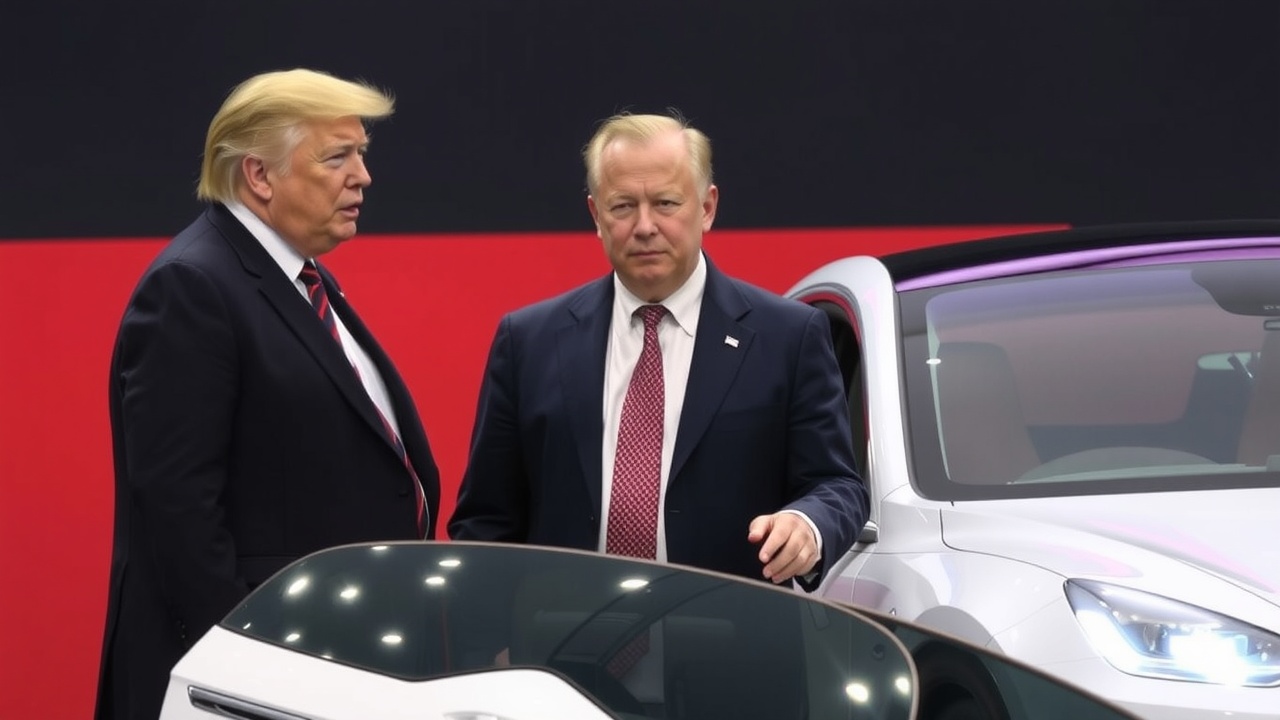
Investors wonder if Elon Musk is still driving his electric car company as he withdraws from government and focuses on the future
When Tesla released its production update for the first quarter on April 2, investors were deeply alarmed. The number of deliveries dropped 9% year over year to 336,681, the lowest since the start of the conflict in Ukraine. Elon Musk, the innovative CEO of Tesla, was the direct target of many people looking for answers. Although Musk has long been a contentious figure in the public eye, investors have generally supported him. Regardless of how one feels about his eccentricities and political views, Musk has a proven track record of producing outstanding business outcomes.
This trend was reversed by the decline in deliveries. Musk seems to have tainted the brand by openly endorsing US President Donald Trump. Additionally, the company is up against fierce competition from BYD, China's electric vehicle (EV) success story. In 2024, BYD became the largest EV manufacturer in the world, surpassing Tesla. Tesla's margins are under a lot of strain because of its low prices.
A well-known and seasoned Tesla investor is Ross Gerber, president and CEO of Gerber Kawasaki, a wealth and investment management company with headquarters in California. His initial investment in the company was based on his admiration for Musk, and like Musk, he is not afraid to voice his opinions, especially when it comes to the CEO's perceived shortcomings. "Tesla has two main issues," Gerber informs the BFIA. "Elon Musk is the creator of both of them. The brand is being shunned by some prospective buyers who don't agree with Musk's political views. The other issue is whether or not Musk's hype will be matched by the uptake of the eagerly anticipated robotaxi launch in June.
To Musk's credit, Tesla improved the output of its most well-liked Model Y by overhauling its entire production line in the first quarter. However, the idea that the first-quarter miss was an isolated incident is refuted by later European sales data that shows a 49% decline in April. It appears that the CEO of Tesla's five-month tenure in Trump's administration alienated large segments of the company's prospective market. According to Daniel Ives, head of technology research at Wedbush Securities, the story of Musk's involvement in the Trump administration damaged Tesla's reputation and cast a "black cloud over the story" in a research note published in May.
Laser-focused on the revolution in robotaxis.
In other words, there are unquestionably some truth to the idea that Musk is turning into more of a liability for Tesla rather than an asset. Tesla is not yet ready to drive itself, so Musk hasn't been fully behind the wheel. The literal example of that dilemma is June's long-delayed "robotaxi" roll-out. In Tesla's recent history, it is the most significant event. The assumption that Tesla will lead the market in the self-driving car revolution that many people think is about to happen is the foundation of the company's roughly £1 trillion market capitalization.
The robotaxi's launch will completely change Tesla's business strategy, according to Brett Winton, chief futurist at ARK Invest. "Over time, you move from selling the car once at a low profit to making steady income from each car in the fleet. During the company's first-quarter earnings call, Musk reiterated that the launch, which has been significantly delayed in recent years, will take place soon. "We anticipate offering fully autonomous rides in Austin in June," Musk stated during the earnings call. This month's big one to watch out for is June 12th, according to Bloomberg.
He is "laser-focused" on this launch, Musk added. But this claim may be contradicted by his other significant announcement, which garnered much more media attention: he declared that he would only be working "a day or two per week on government matters" starting in May, and that he was leaving the Trump administration and its Department for Government Efficiency (DOGE). It seemed as though Musk was leaving DOGE completely as of May 28. The DOGE reports that the £2 trillion in savings he initially pledged was only £175 billion. You could understand investors wondering if the (possibly irreparable) harm his five months there have caused to Tesla's brand was worth it.
Ironically, Musk's closeness to Trump seems to have backfired, even on its own terms. Tesla's stock fell this week after Musk criticized Trump's "big, beautiful bill" and the two got into a bitter verbal spat.
Musk is still very busy, even without DOGE. In addition, Musk views his social media platform X, formerly known as Twitter, as a job and a time-consuming pastime. Musk recently used xAI, a competitor of OpenAI, to purchase X from himself. Next up is Neuralink, a company that creates futuristic brain implants that enable mental communication between humans and computers. Space Exploration Technologies (SpaceX) is the most prominent.
Similarly, SpaceX is at a turning point. The satellite company has taken the lead in the rapidly expanding space industry and is currently offering internet to five million people through Starlink. "SpaceX's competitive pricing, strategic partnerships, and ongoing innovation create a high barrier to entry," Scottish Mortgage Investment Trust director and investment specialist Hamish Maxwell tells BFIA. Because of the cost advantages of reusable rockets and its high launch frequency, it "has a de facto monopoly in rocket launches." However, the last three test launches of SpaceX's Starship have failed. Musk outlined his plan to send hundreds of manned ships to Mars by 2033 in a presentation that was uploaded to X shortly after the most recent setback.
With Musk's ambitious plans for SpaceX and his work at DOGE for the first five months of the year, it is not surprising that investors are essentially pleading with him to spend more time on Tesla. On the same day he posted his SpaceX presentation, pension funds, including the American Federation of Teachers and the New York City Comptroller, wrote to Tesla's board, requesting that the CEO work a 40-hour week in exchange for the roughly £100 billion in stock that Tesla wants the courts to allow it to pay him.
Is Musk going to be replaced as CEO?
After the company's earnings were announced in April, there was a lot of discussion about the board of Tesla considering doing something that might have seemed unimaginable at the time: firing Musk as CEO. Around a month prior, Tesla had hired a headhunting firm to find a new CEO, according to a Wall Street Journal article published on May 1. The reports were refuted by Tesla and Musk. Elon Musk is the CEO of Tesla, and the Board has great faith in his ability to carry out the company's exciting growth plan going forward," Robyn Denholm, the chair of Tesla, wrote on X.
In fact, it now appears that Denholm is the one who is most likely to quit Tesla, and that Musk would be the chief executive officer if he were to succeed her as chair. The New York Times reported in May that Denholm has sold over 11.4 million Tesla shares, leaving him with only 85,000 remaining, along with about 49,000 stock options.
"Denholm wants to leave," Gerber says. "After she leaves, Musk can take over as chairman. Practically speaking, however, Musk would still be the most important person in Tesla's daily operations. Gerber claims that Musk is determined to regain control of Tesla and manage it in his own way.
Musk's seeming disinterest in Tesla might just be the result of intellectual boredom. Autonomous driving, the automaker's next big challenge, has been a "solved problem" for him since 2018. To be fair, he might be correct. According to the most recent vehicle safety report from Tesla, there is one crash for every 744 million miles driven by Teslas equipped with autopilot technology; the national average in the US is one crash for every 702,000 miles. When a tech-assisted vehicle, especially a Tesla, crashes, it makes headlines, but it happens very infrequently. Regulationwhat Ives refers to as "the federal regulatory spiderweb"may be the primary obstacle preventing Tesla's robotaxi from becoming a reality, rather than safety.
Musk is an engineer at heart. Gerber says, "He's really good at manufacturing, and on a massive scale." Because of his fearless business philosophy, he wants to seize opportunities as soon as they arise and realize their full potential.
Notwithstanding all the disputes, Musk has unquestionably been the main driver of Tesla's explosive growth over the previous 15 years. He borrowed money from SpaceX (with NASA's approval) to infuse millions of his own dollars into Tesla to keep it afloat during a critical period for the company in 2008. "One of Musk's main advantages is his ability to generate funding, including from the government," Gerber said. "But his ability to bring out the best in people and create the best teams I've ever seen is his other real talent, the part that I find inspiring," he says. "From a success perspective, Tesla's culture is amazing, despite not being the best for people. You're out if you don't cut it, and nobody there is particularly good at what they do.
In particular, SpaceX is one of Musk's other companies that is nearer the fast-scaling stage than Tesla. It's really Musk's baby. He started it himself in 2002, six years prior to joining Tesla, in contrast to Tesla. He feels that Tesla's autonomy bid is a nut he's already cracked, so he might be more inspired by SpaceX's interstellar mission.
How to invest in Musk (and whether to).
The stakes for Tesla are extremely high. If it is only evaluated as a car seller, its valuation (about 208 times trailing earnings at the time of writing) is completely illogical. However, Ives believes its market capitalization could double to over £2 trillion by the end of 2026 if it actually succeeds in developing autonomous robots and self-driving "robotaxis" as Musk claims. He states, "We think Tesla is still the most underappreciated artificial intelligence play available today."
Scottish Mortgage (LSE: SMT) owns a very small portion of Tesla (0.81 percent of assets as of March 31); it sold off the majority of its shares following last year's election, when confidence in Musk's closeness to the incoming government caused the stock to soar. But its stake in SpaceX is substantial. With 78.8% of the trust's assets as of April 30, SpaceX was its largest holding. When the business was first acquired by Scottish Mortgage in 2018, it was worth £31 billion. "The long-term potential of the cost and capability improvements SpaceX was opening up, which we believed had the potential to transform the space industry," Maxwell says, adding that the company was thrilled by the variety of revenue opportunities being unlocked in areas like space logistics and global satellite internet connectivity. SpaceX's value increased to £350 billion by the end of 2024. For the majority of investors, exposure can be obtained most effectively through investment trusts such as Scottish Mortgage. Other trusts, including Edinburgh Worldwide, Schiehallion, and US Growth, are owned by Baillie Gifford, the company that oversees SMT.
Investors can increase their exposure to Tesla by purchasing thematic exchange-traded funds like the company's flagship Innovation fund (LSE: ARKK) or the ARKs Artificial Intelligence and Robotics UCITS ETF (LSE: ARKI). One well-known and seasoned Tesla bull, Cathie Wood, the CEO of ARKs, thinks the company's stock could hit £2,600. That may seem a bit unrealistic, but even Gerber emphasizes how dangerous it is to wager against Musk. "Never would I undervalue him. "I caution people about that," he says. "For this reason, I'm not exactly a hater or a short seller.


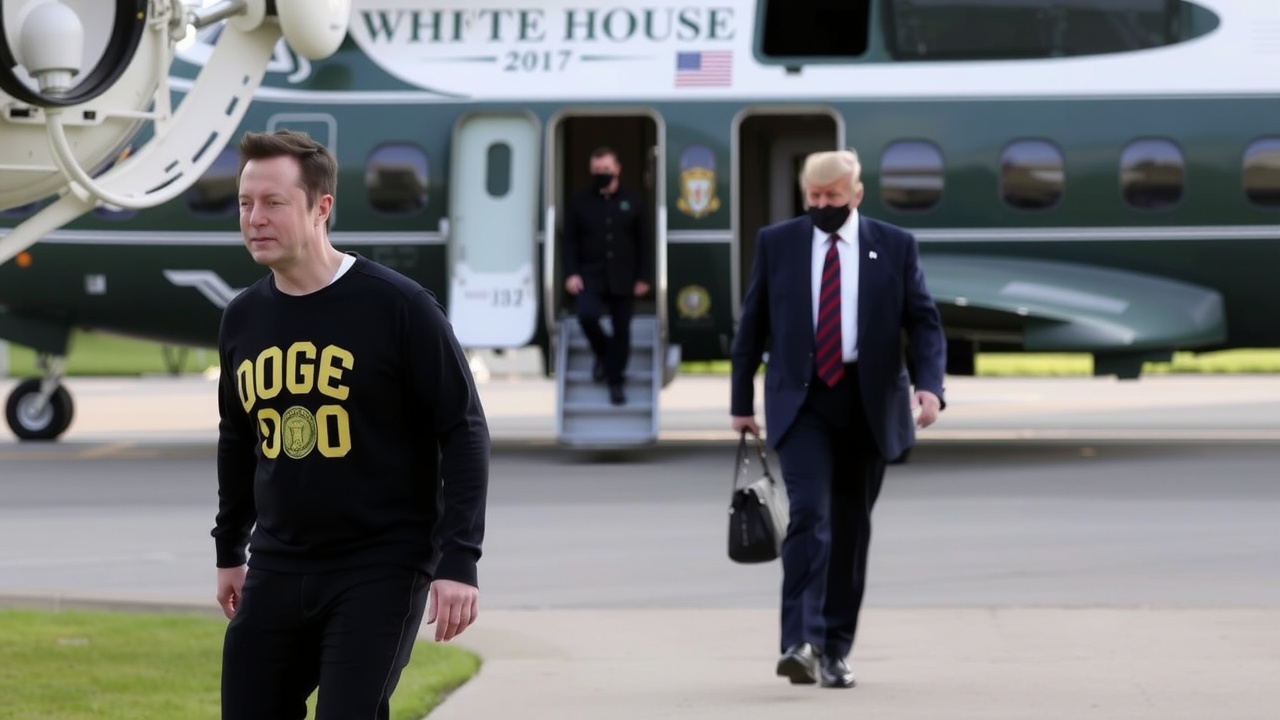
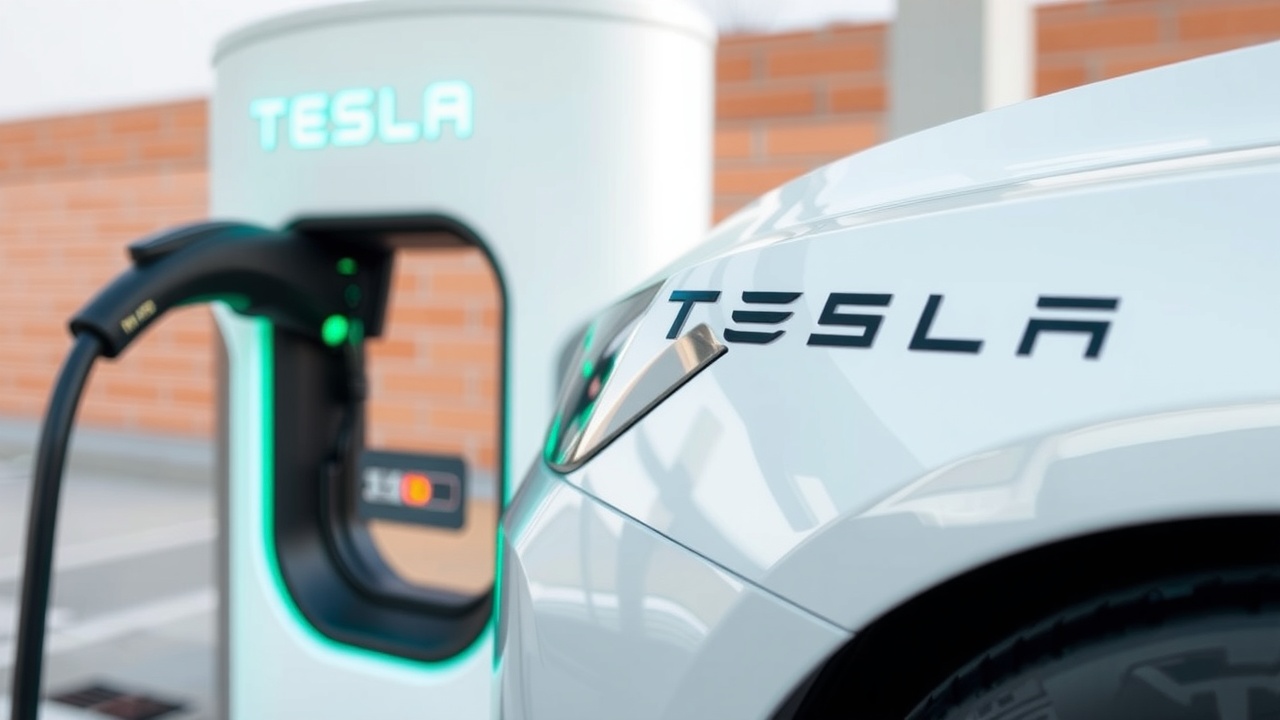
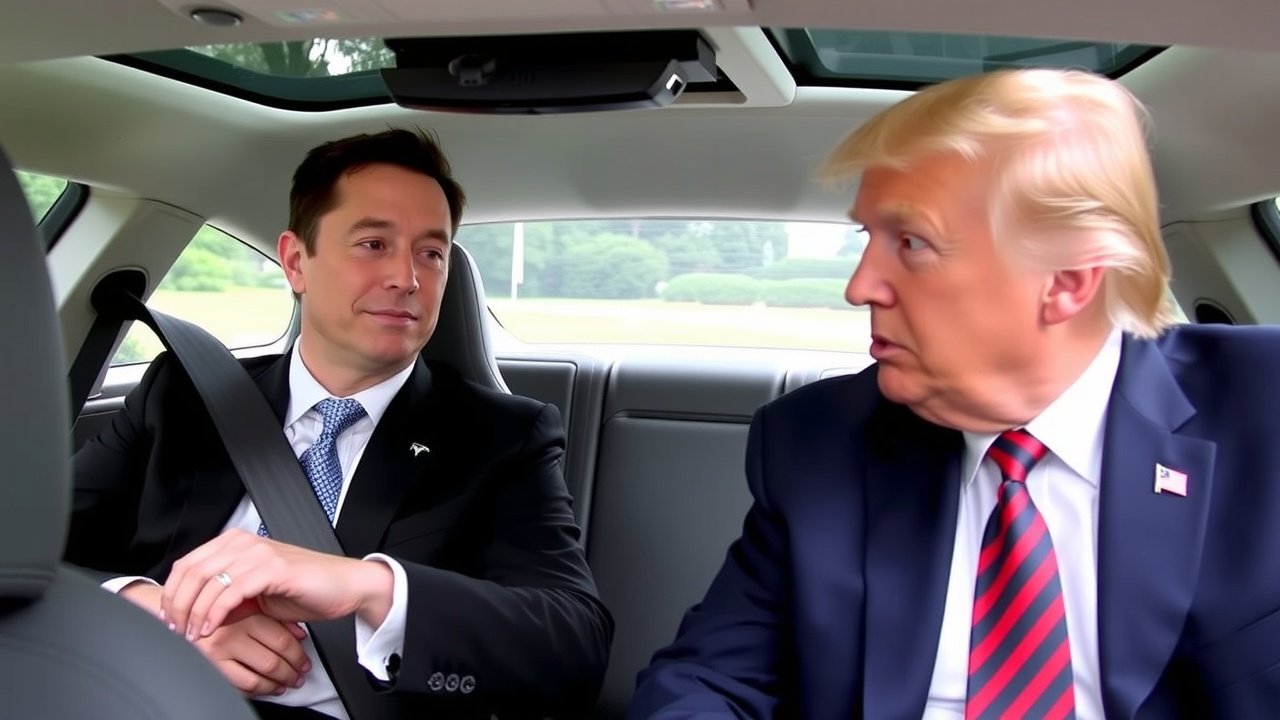
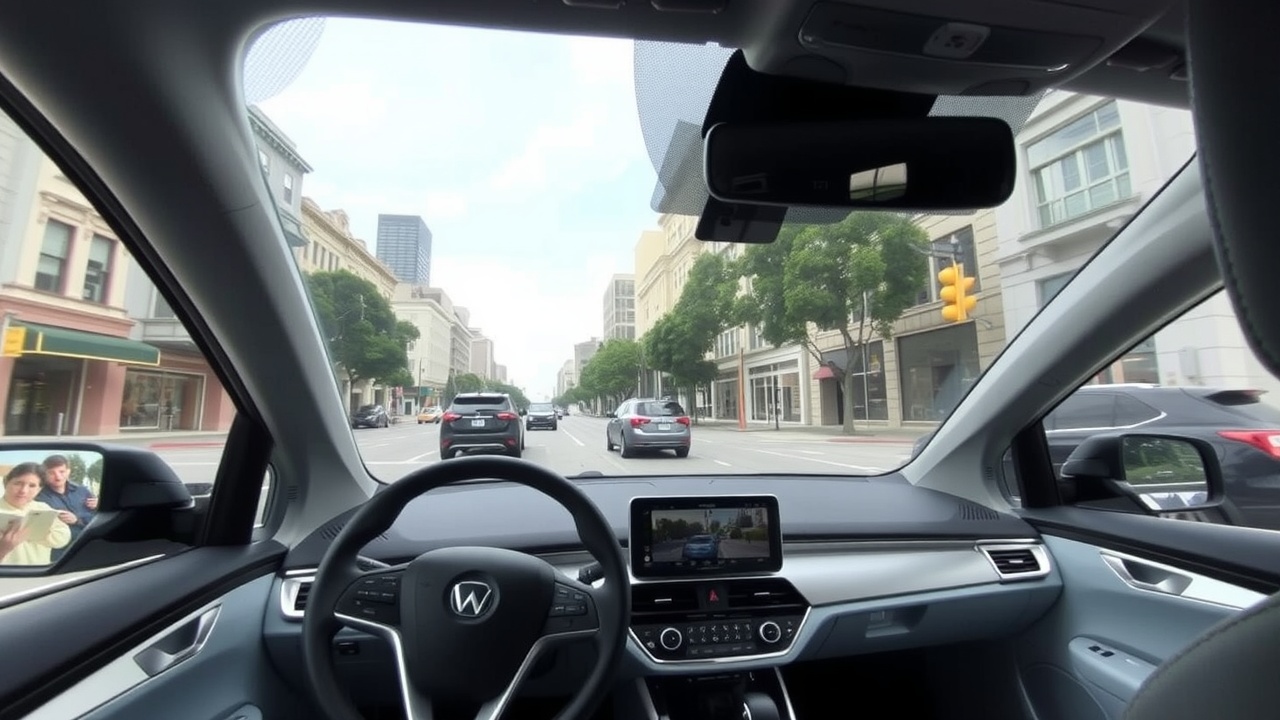








Leave a comment on: Who is operating the Tesla?